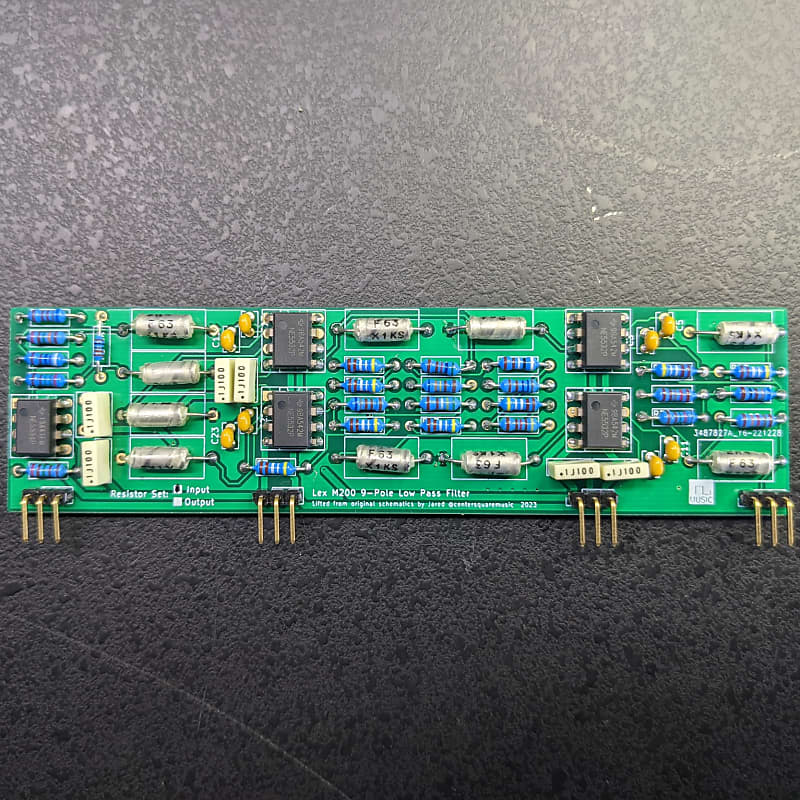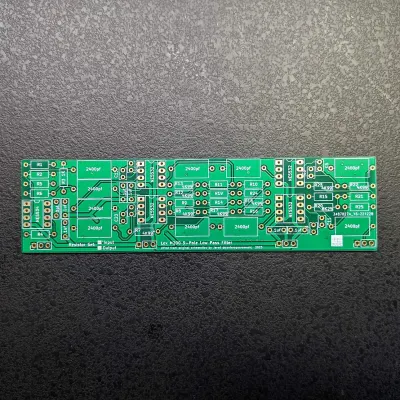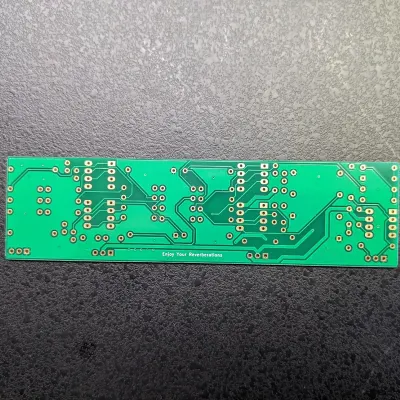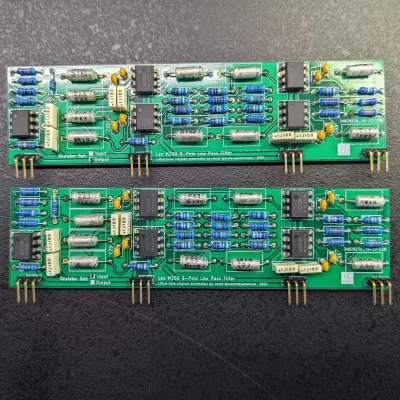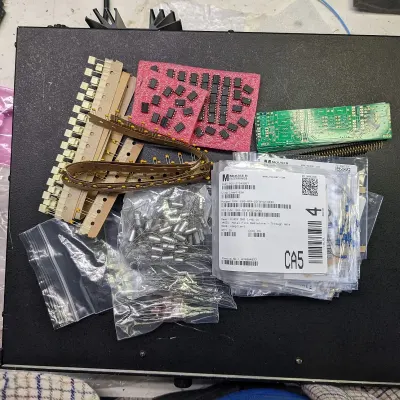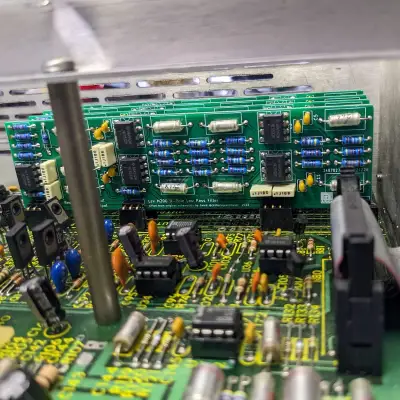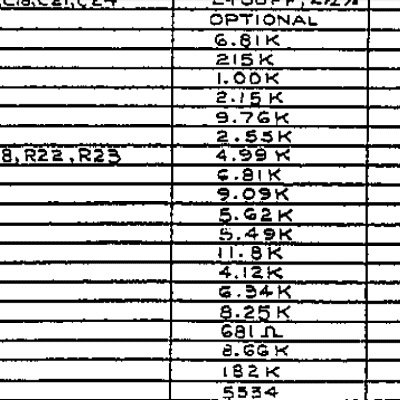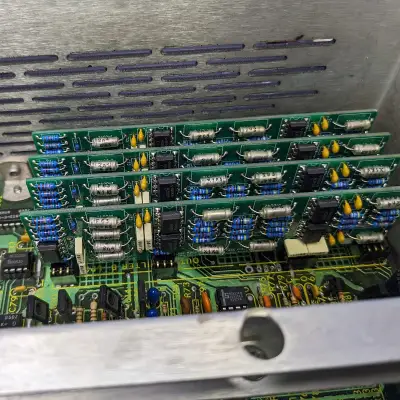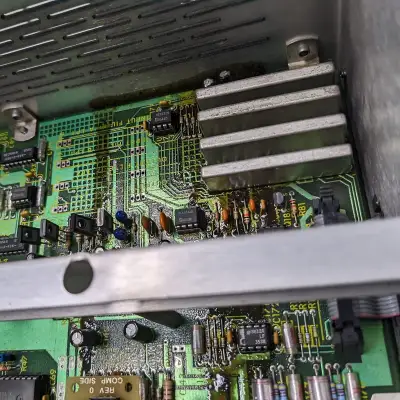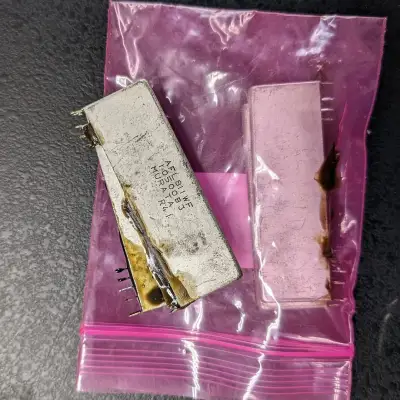If you are lucky enough to own a Lexicon Model 200 reverb like me, I hope you are also lucky enough to have one without the Murata input and output filters mine had. Over time these overheat and leak a rubberized epoxy potting material all over the main board, requiring hours of repair time (see last photos for what mine looked like). They are also a likely culprit if you are hearing nasty high frequency digital sh** in your reverb signal.
At one point, instead of using these canned Murata filter units, Lexicon manufactured their own 9-pole 10.5kHz low pass filter modules in-house. Thankfully, the schematics and documentation for these boards are in the original service manual, and I was able to make a faithful copy and repair my M200. I'm making these available to the pro audio community as a complete DIY kit, hoping to help others fix/improve their unit, and to recoup on a fraction of the hours I spent working on this.
I had considered designing these for SMD (surface mount) devices for ease of manufacturing. In the end, I decided to keep it through hole to allow the use of 2200pf 1% polystyrene capacitors as the original spec'd for precision filtering. It means you need to populate a pretty tight board by hand, though- we're talking intermediate to advanced soldering abilities here. You also need to desolder the original modules, an unused op amp, and some unpopulated pads filled from the original wave soldering process. Lexicon designed a single main board for both filter types, so these are drop-in after some desoldering.
This kit uses quality gold-plated circuit boards, Kemet bypass caps, Yageo 1% metal film resistors, C0G/NP0 10pf ceramic caps, Texas Instruments op-amps, and gold-plated right angle connectors. All of the top quality components I wanted for my personal M200.
Note: there are some resistor differences between input and output filters. I designed a single circuit board to easily use the original documentation to make either unit. Let me know what filter(s) you need after purchase and I will supply the correct resistors. There's a convenient check-off box printed on the boards to help you keep track in case you are replacing both types.
I can assemble and test these in my unit for an added cost, but I highly suggest you DIY or have your tech buddy do it. I don't think it'd be cost effective having me do it.
To clarify: this listing is a *diy kit* for a *single* replacement filter module (out of 4) for the Lexicon Model 200 reverb.
Thanks for looking and happy reverberations.
